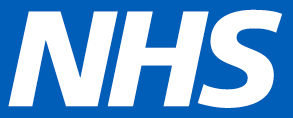Over the years we have developed multiple early years careers schemes and interventions. These include graduate schemes both in-house for SCW and for our partners across the system at a local level, as well as managing and supporting the pan regional delivery of specialist Digital Data and Technology (DDaT) graduate apprenticeship schemes and delivering assessment and selection support for national talent schemes.
Our SCW in-house graduate scheme is the scheme that we have delivered for the longest period, taking our first cohort in 2014 with an annual intake every year since. I am lucky enough to have been around to see the full history of the scheme and having acted as the programme lead for the initial six years am in the fortunate position that I still keep in touch with grads from across the years, right back to our first intake. As my career has developed and grown, so have theirs, many still within SCW and lots who have moved into our wider health and social care partners around our systems.
We sometimes get asked the question around return on investment on early careers schemes and there are varying statistics around graduate retention. This is often measured based on tenure post completion of the scheme. As we know, retention of our workforce is a challenge across the NHS and early careers are no exceptions. Graduates may want to take career breaks to travel, may want to try a different organisation to experience a different culture and politics, explore new role opportunities or may want to try a different career trajectory. It’s all part of the learning experience.
What I think is often not measured more broadly as an indicator of learner experience, culture and organisational employee value proposition is how many people stay within the local health and care system and how frequently leavers return, particularly those who started through early careers pathways, be it graduate schemes or formal clinical training pathways.
Throughout my leadership career I’ve had multiple people who have left SCW reach out a couple of years later, having experienced work life elsewhere, to see if we have any upcoming opportunities that may be suitable for them. I always find it deeply touching that someone has thought so much of their experiences with us, particularly during early careers, that SCW still feels like a safe space for them, a home from home where they know that reaching out will be met with a comforting supportive conversation around their recent development and their ambitions for their next steps.
For some of our partners across the health and care system, particularly where there is a static population that comes with rural geographies for example, understanding and optimising the early careers learner experience when they are with you and creating a safe and supportive exit can leave the door open for valued people to return, optimising the long term candidate pipeline and also supporting local drivers around social and economic value to populations and communities. We’ve recently been exploring the topic of learner experience in relation to long term medical candidate pipeline and will be sharing more around that over the forthcoming weeks.
For more information on how SCW can support you in development of early careers strategy, evaluation of learner experience or developing approaches to retention, contact










